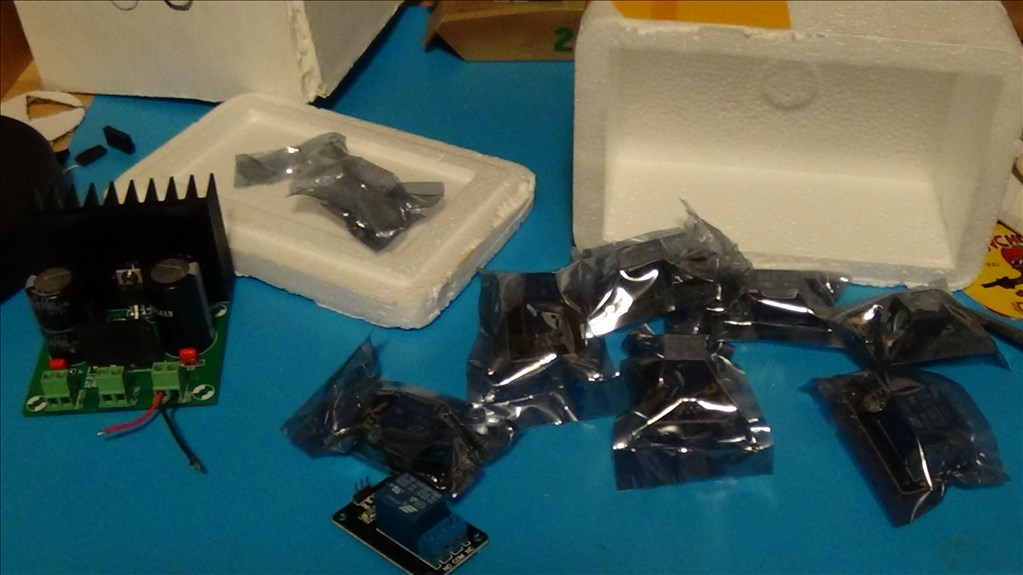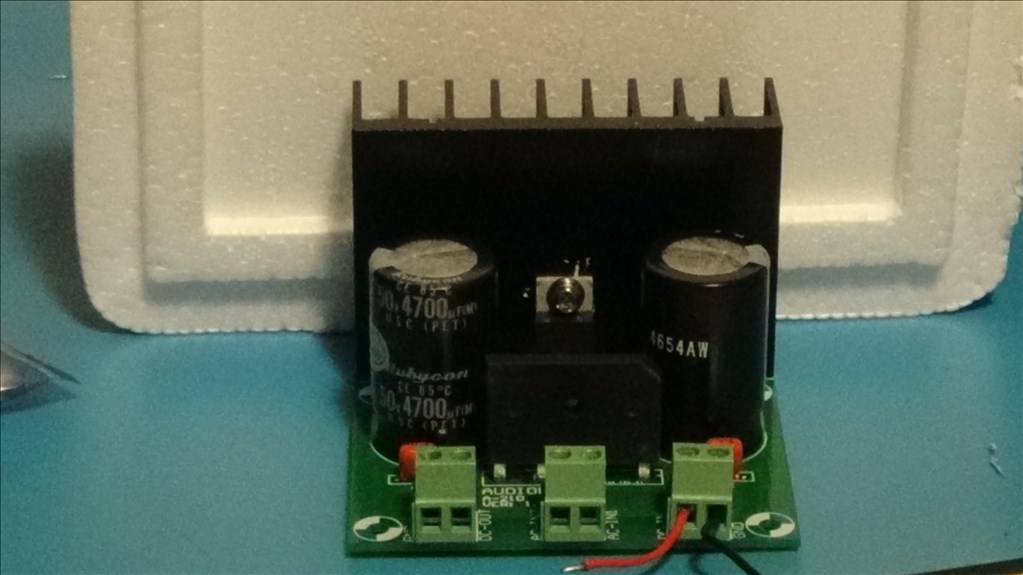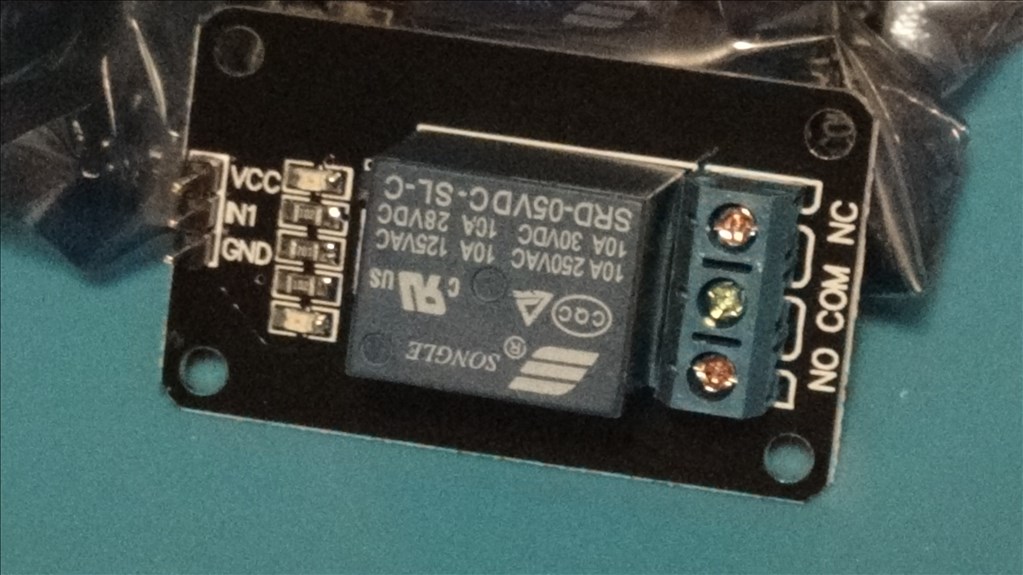Asked
— Edited
Hello everyone!
I just got my first shipment of parts from china which included: 8x relays
and 1x 5amp adjusting power adapter(Audiowind).
Just waiting for some regulators, and I should be good to finish some robots!
A question: Relay wiring?
Relay:
How do I wire this up?
Thanks, Tech




No is normally open, meaning when the relay isn't energised the contact between com and no is open. Nc is normally closed, the opposite to normally open. Com is common, this is what gets passed through to No or Nc.
Vcc is likely your +5V Ground is ground In1 is the enable for the relay, setting high will switch the relay making No close and Nc open.
Was there no datasheet?
on the ezb VCC=red (it may be ok to use higher than +5v, just a guess though), ground = black and in1=white (signal)...
e.g. Set(D0,ON) engages the relay on pin D0... you want your switch between NO AND Com on the relay itself... when Pin 0 goes high the relay closes completing your circuit...
does that have a transistor on the board? I don't think you should be connecting it directly to the ezb without a transistor. Also a diode is necessary on relays because when the relay closes, the voltage is reversed and pushed into the circuit.
Lol I was thinking the same thing as @DJ that board may use an LED as a flyback diode but it doesn't look like there is a driving transistor there to handle the current needed by the relay (unless it's surface mounted under the relay or on the other side of the board)
I assumed these would have the switching transistor circuit built in to them but perhaps not. @Techno, post either a link to the part or the datasheet on it. Also a picture of the other side would be useful.
Good point... I never thought to ask as I have some that look very similar... They run on 5V and draw about 20ma so I am able to connect them directly to the ezb @Tech do you have the stats on the relay board?
Link: www.ebay.ca/itm/5V-One-1-Channel-Relay-Module-Board-Shield-For-PIC-AVR-DSP-ARM-MCU-Arduino-K0TT-/201203063866?pt=LH_DefaultDomain_0&hash=item2ed8a31c3a
DATASHEET:
songle relay
@Tech... Just looked at the stats... You can safely drive this relay right from an ezb digital port...